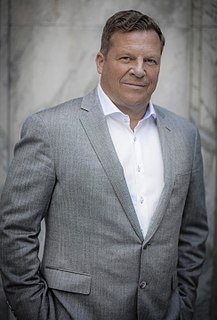 W
WChristen Eugen Ager-Hanssen is a Norwegian internet entrepreneur & venture capitalist. Since the late 1990s, he has been based in London and is a highly controversial private equity professional. Ager-Hanssen was involved in several high-profile M&A deals and has become known for public hostile takeovers. In a Canadian Business cover story, he was described as both Gordon Gekko and a modern-day Viking. In 1999 he became one of Norway's richest citizens. He was reported to be worth over $2.5 billion in 2005.
 W
WMichael Aldrich was an English inventor, innovator and entrepreneur. In 1979 he invented online shopping to enable online transaction processing between consumers and businesses, or between one business and another, a technique known later as e-commerce. In 1980 he invented the Teleputer, a multi-purpose home infotainment centre that was a fusion of PC, TV and Telecom networking technologies. In 1981 he developed the concept of interactive broadband local loop cable TV for mass market consumer telecommunications.
 W
WRobert Stanley "Bob" Barton was recognized as the chief architect of the Burroughs B5000 and other computers such as the B1700, and a co-inventor of dataflow. Barton's thinking has been broadly influential. As one example, Barton influenced the systems and higher-level computer language thinking of Alan Kay who went on to further develop object-oriented programming, co-design Smalltalk, and develop concepts key to modern GUI systems built into the Macintosh and later Microsoft Windows.
 W
WWerner Michael Blumenthal is a German-born American business leader, economist and political adviser who served as United States Secretary of the Treasury under President Jimmy Carter from 1977 to 1979.
 W
WJoseph E. Boyer was a Canadian-American inventor and computer industrialist.
 W
WWilliam Seward Burroughs I was an American inventor born in Rochester, New York.
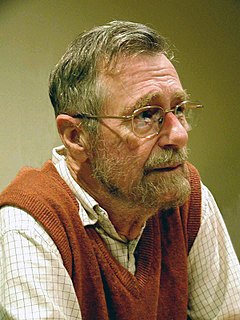 W
WEdsger Wybe Dijkstra was a Dutch computer scientist, programmer, software engineer, systems scientist, science essayist, and pioneer in computing science. A theoretical physicist by training, he worked as a programmer at the Mathematisch Centrum (Amsterdam) from 1952 to 1962. A university professor for much of his life, Dijkstra held the Schlumberger Centennial Chair in Computer Sciences at the University of Texas at Austin from 1984 until his retirement in 1999. He was a professor of mathematics at the Eindhoven University of Technology (1962–1984) and a research fellow at the Burroughs Corporation (1973–1984). In 1972, he became the first non-American, non-British, and continental European winner of the Turing Award.
 W
WJohn Adam Presper Eckert Jr. was an American electrical engineer and computer pioneer. With John Mauchly, he designed the first general-purpose electronic digital computer (ENIAC), presented the first course in computing topics, founded the Eckert–Mauchly Computer Corporation, and designed the first commercial computer in the U.S., the UNIVAC, which incorporated Eckert's invention of the mercury delay line memory.
 W
WCraig Ferguson is a Scottish-American television host, comedian, author, and actor, best known for hosting the CBS late-night talk show The Late Late Show with Craig Ferguson (2005–14), for which he won a Peabody Award in 2009 for his interview with South African archbishop Desmond Tutu that year. He also hosted the syndicated game show Celebrity Name Game (2014–17), for which he won two Daytime Emmy Awards, and Join or Die with Craig Ferguson (2016) on History. In 2017 he released a 6-episode web show with his wife Megan, titled Couple Thinkers.
 W
WRavi Veeraraghavan Gomatam is the Director of Bhaktivedanta Institute and the newly formed Institute of Semantic Information Sciences and Technology. He teaches graduate level courses at these institutes. He was an Adjunct Professor at Birla Institute of Technology & Science (BITS), Pilani, Rajasthan, India (1993-2015).
 W
WJohn P. Healey was an American aerospace executive manager. He was best known for his role in the redesign and manufacture of the command modules for the Apollo program after the catastrophic launch pad fire that took the lives of Command Pilot Virgil I. "Gus" Grissom, Senior Pilot Ed White and Pilot Roger B. Chaffee on January 27, 1967. He died in March 2019 at the age of 97.
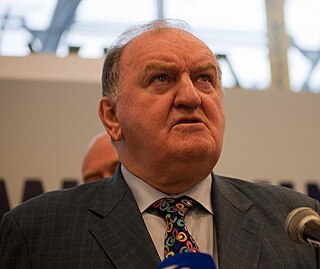 W
WGeorge Hook is an Irish broadcaster, journalist and rugby union pundit. He formerly hosted The Right Hook and High Noon on the Irish radio station Newstalk and is a member of the popular sports media website, Pundit Arena.
 W
WDeborah C. Hopkins is CEO of Double Chase Advisors and is an independent corporate board member. She was Citigroup's Chief Innovation Officer, a position she held beginning in 2008, and CEO of Citi Ventures beginning in 2010. She retired from Citigroup, effective December 31, 2016.
 W
WNaveen K. Jain is a business executive, entrepreneur, and the founder and former CEO of InfoSpace. InfoSpace briefly became one of the largest internet companies in the American Northwest, before the crash of the dot-com bubble and a series of lawsuits involving Jain. In 2010 Jain co-founded Moon Express where he is the Executive Chairman, and in 2016 founded Viome, where he is the CEO.
 W
WDonald Ervin Knuth is an American computer scientist, mathematician, and professor emeritus at Stanford University. He is the 1974 recipient of the ACM Turing Award, informally considered the Nobel Prize of computer science. Knuth has been called the "father of the analysis of algorithms".
 W
WRobert Lapham was a reserve lieutenant in the US Army in World War II.
 W
WJonas Marius Lied was a Norwegian entrepreneur, businessman, diplomat, author and art collector. He obtained a short vocational business education and was proficient in English, French, German and Russian. Lied was also a noted athlete, for instance in 1906 together with Erik Ole Bye he won the Lyle Cup for double sculls. He established The Siberian Steamship, Manufacturing & Trading Company in 1912 with the purpose of importing and exporting goods through a new northern shipping lane and the Ob River and Yenisei River. He obtained Russian citizenship with the help of Grand Duke Alexander, but regained Norwegian citizenship in 1931 when he left the difficult times in the Soviet Union. According to the Russian tradition, he long used the signature "I.G. Lid" after his father Hans.
 W
WJohn Lions was an Australian computer scientist. He is best known as the author of Lions' Commentary on UNIX 6th Edition, with Source Code, commonly known as the Lions Book.
 W
WJames Alvan Macauley Sr. was the president of Packard Motor Company from 1916 until 1939.
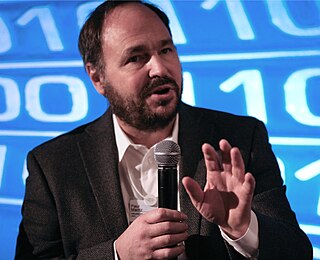 W
WPaul Alistair Maritz is a computer scientist and software executive. He held positions at large companies including Microsoft and EMC Corporation. He currently serves as chairman of Pivotal Software.
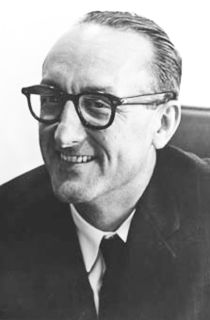 W
WGeorge Edwin Mueller, was an American electrical engineer who was an associate administrator at NASA who headed the Office of Manned Space Flight from September 1963 until December 1969. Hailed as one of NASA's "most brilliant and fearless managers", he was instrumental in introducing the all-up testing philosophy for the Saturn V launch vehicle, which ensured the success of the Apollo program in landing a man on the Moon and returning him safely to the Earth by the end of 1969. Mueller also played a key part in the design of Skylab, and championed the space shuttle's development, which earned him the nickname, "the father of the space shuttle."
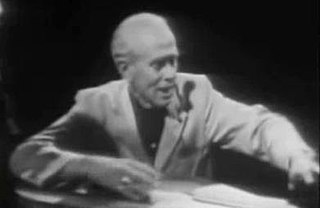 W
WJohn Jacob Niles was an American composer, singer and collector of traditional ballads. Called the "Dean of American Balladeers," Niles was an important influence on the American folk music revival of the 1950s and 1960s, with Odetta, Joan Baez, Burl Ives, Peter, Paul and Mary and Bob Dylan, among others, recording his songs.
 W
WLieutenant Kenneth Lee Porter was a World War I flying ace credited with five aerial victories.
 W
WRob Ryan is an American businessman and entrepreneur. He is best known as a co-founder and former CEO of Ascend Communications, which was ultimately acquired by Lucent Technologies. Ryan has authored two books with his lessons about startup companies.
 W
WJesse Gurney Vincent was an American aircraft, marine, and automobile engine designer. Famed initially for his design of the World War I Liberty aircraft engine, he rose to enduring prominence as the longtime chief engineer for Packard automobiles.
 W
WChilde Harold Wills was an American engineer and businessman. He was an early associate of Henry Ford, one of the first employees of the Ford Motor Company, and the chief contributor to the design of the Model T. After leaving Ford, he began his own automobile company.